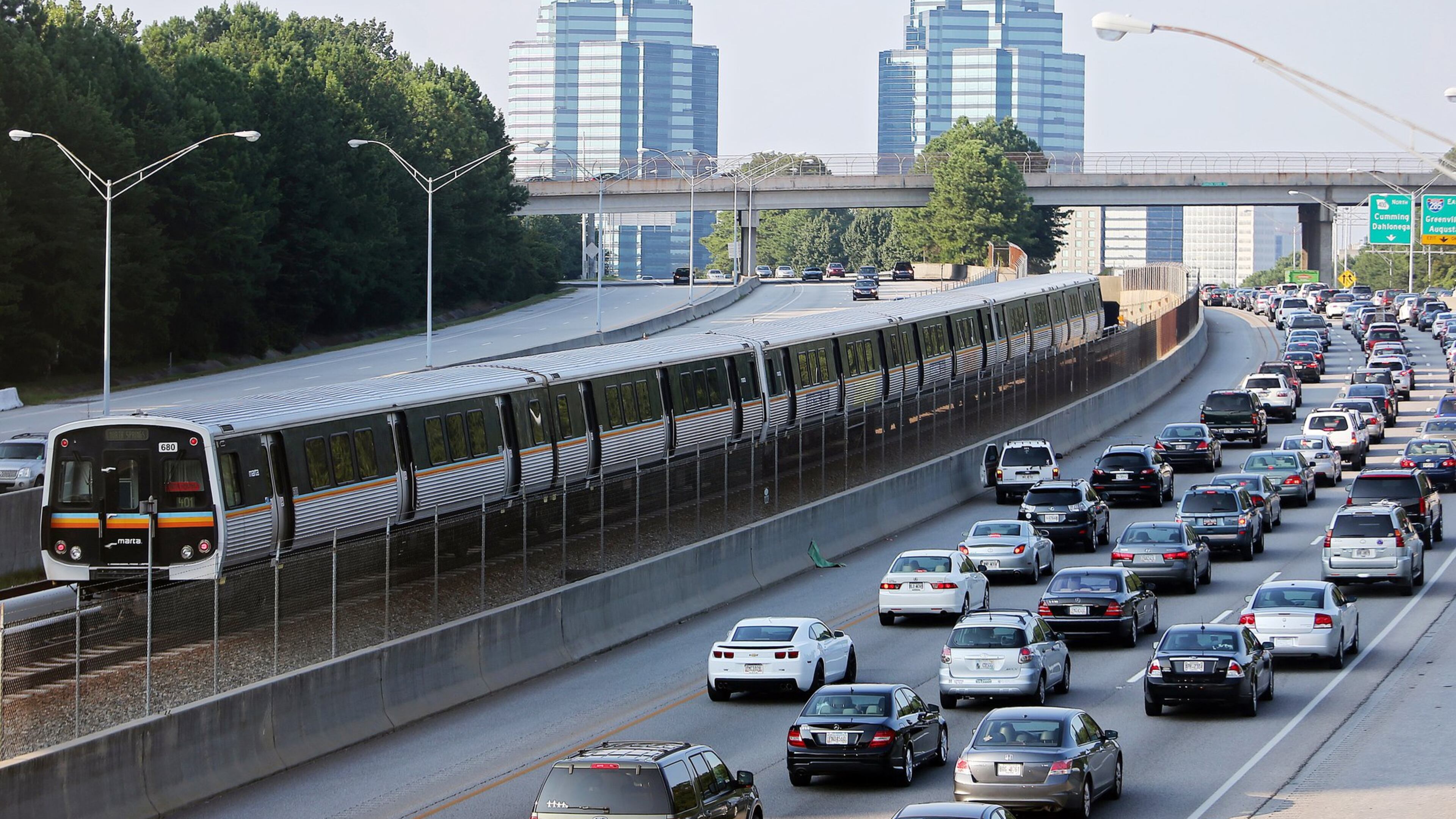Senate slams the door on MARTA expansion

MARTA’s expansion plans
- $2.4 billion heavy rail extension along Ga. 400 to Windward Parkway in Alpharetta.
- $1 billion to $2 billion light rail system along the Emory/Clifton Corridor.
- $2.5 billion heavy rail extension along I-20 East to the Mall at Stonecrest.
The sponsor of legislation that would have enabled MARTA to double the size of its rail system declared on Friday: “It’s dead.”
A visibly disappointed state Sen. Brandon Beach, R-Alpharetta, had been hoping his bill would come to a vote in the full Senate on Monday.The measure’s apparent demise pitches the future of transit service in metro Atlanta into a state of uncertainty, since the $8 billion proposal to expand MARTA in three directions was the sole long-term transit plan that has been put forth to date.
Senate Bill 330 hit a wall in the powerful Rules Committee, after several metro Atlanta lawmakers expressed opposition this week. They joined opponents in the cities of Alpharetta and Johns Creek, which have strongly resisted MARTA's expansion.
The Rules Committee is tasked with scheduling bills for a vote. On Friday, the committee refused to tee up the bill for Monday. That’s Crossover Day — the last day for bills to cross from one chamber to another. If a bill isn’t approved in one house or the other by Crossover Day, it is theoretically dead for the session. But even dead bills may rise up late in the session in the form of amendments to other bills that did make it through Crossover Day.
Friday’s turn of events took many by surprise. MARTA had been enjoying a wave of positive public opinion — including, perhaps most surprisingly, among top conservative state lawmakers — in the months leading up to the legislative session.
In recent days, though, opposition seemed to be strengthening among at least a half-dozen GOP senators whose districts touch the existing or proposed MARTA service areas.
State Sen. Renee Unterman, R-Buford, who is on the Rules Committee, took to the Senate well on Wednesday to say the plan is too narrowly focused on DeKalb and Fulton. She said Cobb and Gwinnett need to be part of any long-term transit planning.
“This train needs to be slowed down,” Unterman said. “We are asking for regionalization. We are asking for the (Atlanta Regional Commission) to come up with a regional plan, and for work on a study committee.”
State Sen. Vincent Fort, D-Atlanta, said he didn’t know whether the bill could be revived, but he would support any efforts to do so.
At one time, the MARTA legislation appeared to be on the fast track to passage.
While they never publicly backed the bill, Gov. Nathan Deal, House Speaker David Ralston and Lt. Gov. Casey Cagle had made glowing remarks about the turnaround in the agency under CEO Keith Parker. Since late 2012, the transit system’s bond rating has improved and it has achieved three consecutive years of fiscal solvency; Clayton County residents voted 3-1 in favor of joining MARTA in 2014.
The primary sponsor, Beach, is an influential North Fulton Republican. And the metro Atlanta and statewide business communities also were aligned in favor of the $8 billion plan, which they saw as an economic engine for regional growth.
Katie Kirkpatrick, chief policy officer for the Metro Atlanta Chamber, gave Beach “great credit” for sponsoring the bill, saying business leaders would not stop pushing the proposal because “this issue isn’t going away.”
“As the Atlanta metro region continues to add more people by the day, transit is moving from the ‘nice to have’ category to the ‘must have’ category,” Kirkpatrick said.
MARTA employed 19 lobbyists and spent $42,750 so far this session to make its case to state lawmakers, according to documents obtained by The Atlanta Journal-Constitution and WSB-TV via the Georgia Open Records Act. The lobbyists are authorized to spend up to $219,000 according to the terms of their contract.
Transit agency officials say the additional revenue made possible by SB 330 would let them secure bonds and matching federal funding for up to $8 billion worth of projects.
Alpharetta and Johns Creek leaders have steadfastly opposed the proposal, along with several members of the North Fulton and DeKalb delegations. In broad strokes, they argued that increased taxes to expand MARTA would not solve the traffic problem, and could make it worse.
At Avalon’s Whole Foods in Alpharetta Friday afternoon, Bob Miller and Jennifer Garrett, who both work in commercial real estate in Atlanta, said the area’s car-centric nature would keep MARTA ridership low even if it expanded.
“It just doesn’t jive at all,” with how her coworkers get around, said Garrett, who lives in Woodstock. Miller, who lives in Roswell, said he wouldn’t take MARTA even if it were an option.
Aaron Whitworth said he took the train when he worked in Atlanta. But since he got a job in Alpharetta, he only uses it to get to Braves games or the airport. Expanding the line would reduce traffic somewhat, he said, but he expects most people would choose to stay in their cars.
“Atlanta doesn’t strike me as a city that would work that way,” he said. “It’s just one big suburb, from Milton to Fayetteville.”


